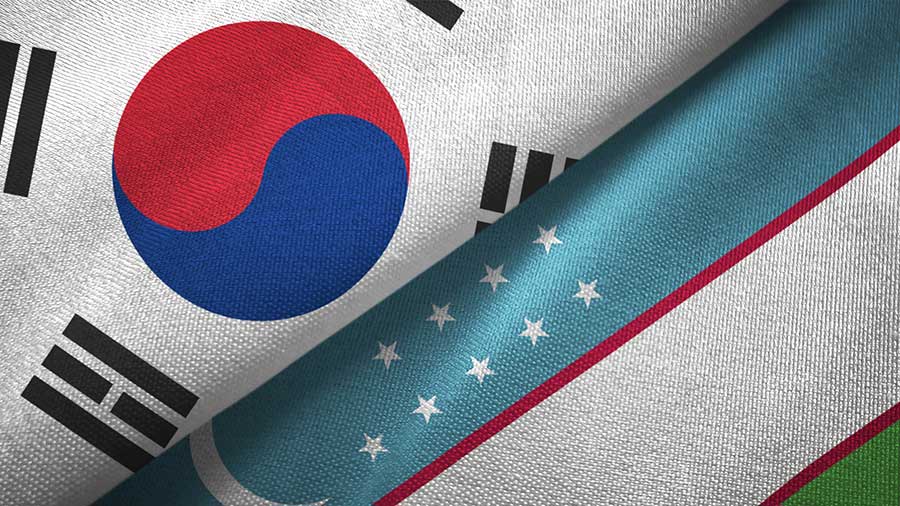Uzbekistan Prises Open Door To RCEP By Moving Along With South Korea Free Trade Agreement

South Korea and Uzbekistan agreed last Friday (December 17) to expedite efforts to clinch a bilateral free trade agreement and to boost cooperation on stable supply chains of key industrial items, Seoul’s finance ministry has said.
The agreement was made during a meeting in Seoul between Hong Nam-ki, South Korea’s deputy prime minister for economy, and Sardor Umurzakov, Uzbekistan’s deputy prime minister for investment and foreign economic relations. During the talks, the two sides agreed to step up efforts for an early conclusion of FTA negotiations, which were launched in January 2021.
According to the South Korean Ministry of Foreign Affairs, bilateral trade in 2021 between South Korea and Uzbekistan reached US$5.33 billion, almost all of it exports from South Korea to Uzbekistan, with just US$70 million imports of Uzbeki goods.
South Korea however is a member of the Regional Comprehensive Economic Partnership (RCEP) free trade agreement which starts from January 1st 2022 and which also includes Australia, Brunei, Cambodia, China, Indonesia, Japan, Laos, Malaysia, Myanmar, New Zealand, Philippines, Singapore, Thailand, and Vietnam. Uzbek investors could access that bloc by establishing operations in South Korea under the upcoming Uzbek-South Korea FTA and abiding by RCEP rules of origin and related standards, sell South Korea manufactured, Uzbek-owned, products onto the RCEP markets. As RCEP contains both 30% of the global consumer population, and 30% of global GDP, these ‘backdoor’ style access routes could be advantageous.
Hong and Umurzakov also vowed to work closely to forge stable supply chains by jointly developing technologies needed to produce key materials for advanced industry sectors. They also discussed measures to enhance cooperation in information and communications technology, digital health care and smart cities, according to the ministry, and signed a joint statement on deepening the special strategic partnership, a handful of agreements related to health care, development, and foreign affairs cooperation for the 2022-2024 period, as well as MoU related to developing dialogue on energy, smart city and smart farm developments, ICT, electric vehicles, and diversification of rare earth supply chains.
Hong asked Umurzakov to support South Korean companies seeking to participate in Tashkent’s major infrastructure projects. Some 100 South Korean companies have entered the country, the largest figure in the Commonwealth of Independent States (CIS).
As of 2020, Uzbekistan was South Korea’s third-largest trading partner among the CIS countries. The annual high-level meeting, launched in 2018, has served as a chance for the two sides to discuss a wide range of bilateral economic issues.
Related Reading
About Us
Chris Devonshire-Ellis is the Chairman of Dezan Shira & Associates. The firm assists British and Foreign Investment into Asia and has 28 offices throughout China, India, the ASEAN nations and Russia. For strategic and business intelligence concerning China’s Belt & Road Initiative please email silkroad@dezshira.com or visit us at www.dezshira.com





